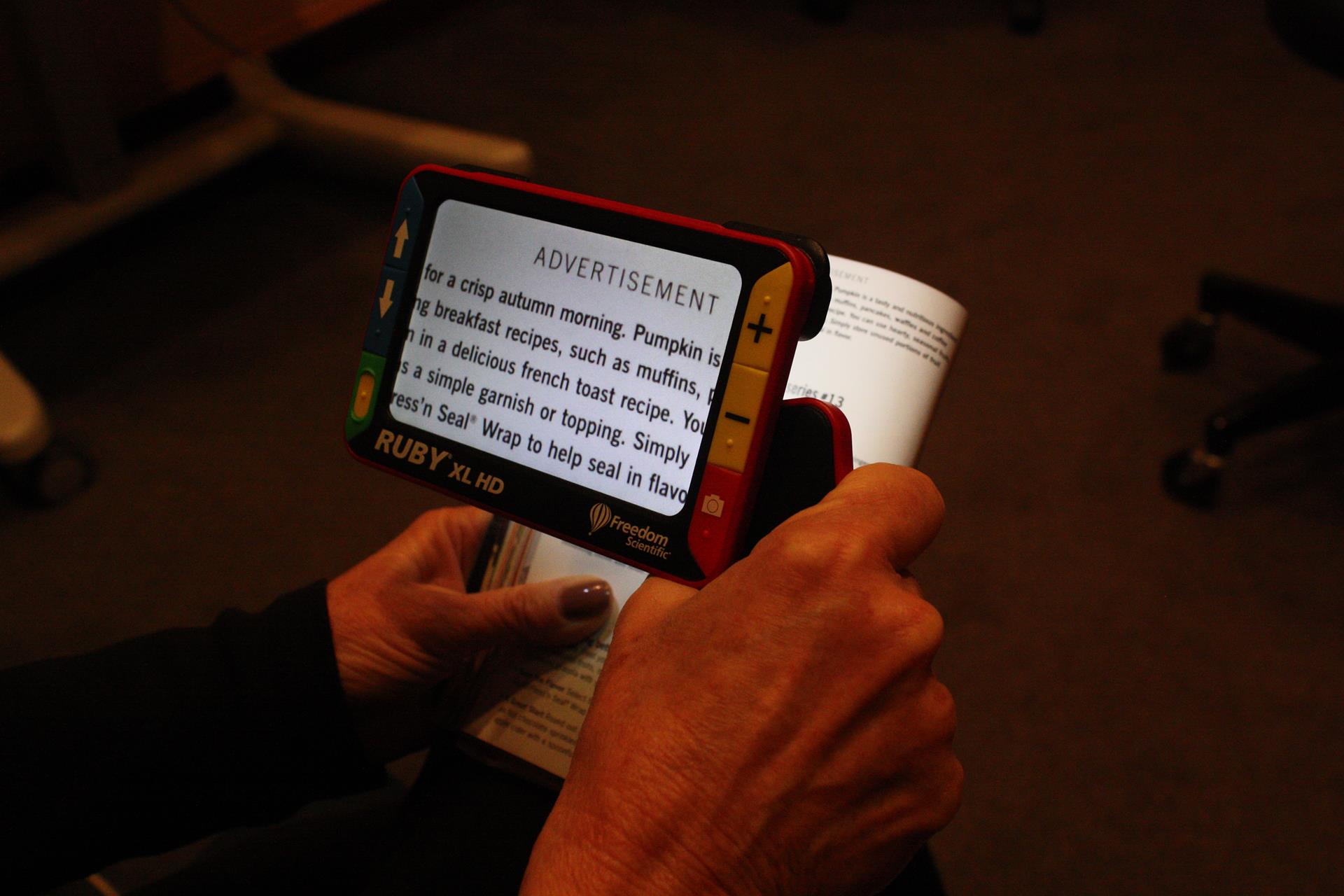
Low vision describes a number of conditions whose results range from legal blindness to a level of visual impairment that cannot be satisfactorily corrected with conventional prescription lenses.
Those who suffer from eye diseases such as macular degeneration, glaucoma or diabetic retinopathy know how frustrating it can be to perform daily tasks such as looking over their bills, reading the newspaper or seeing their food on a plate. Our doctors are trained to provide low vision evaluations to patients who suffer from vision loss.
Many local optometrists, ophthalmologists and retinal specialists refer and entrust their patients to us for low vision care. Because these patients have many special needs, we set aside two full exam slots to evaluate them. Thus, we have ample time to perform a thorough evaluation of their vision and visual needs without making the patient feel rushed. And because every patient has visual needs and vision loss that is specific to them, our low vision doctor will determine the precise magnification and device that will benefit that particular patient. Our office carries many low vision aids ranging from hand-held magnifiers to closed-circuit televisions. Our patients have benefited greatly from being fitted with low vision aids. Many of them find that they are able to look over their own bills, read letters, or recognize faces from across a room.
About Your Low Vision Appointment
The low vision evaluation will begin with a consultation with the doctor reviewing your personal health, history, social, educational and vocational visual needs. We will then perform a thorough vision examination to evaluate and determine if we can effectively maximize your remaining vision with the use of magnifying vision aids and other devices. Please understand that your loss of vision cannot be restored; however, we may be able to recommend some devices that will help you with certain tasks. We will also provide you with a list of local resources that may assist in your rehabilitation.
Preparing for your Appointment
Prior to your appointment, please take notice of areas that you are having problems seeing. For example, some common vision tasks that many of our patients find difficult, even while wearing their eyeglasses are: reading newspapers and books, watching TV, spotting street signs, reading price tags and menus, seeing oven dials or recognizing faces. Please bring any eyeglasses, sunglasses or magnifying glasses that you are presently using. If you are also having difficulty with a certain task, such as reading a particular book, bring that book with you. We also encourage our patients to have a spouse, relative or friend accompany them to the appointment.
Resources
Assisted Living Options for People with Vision Impairment – Read More
Paying For Senior Care – Visit payingforseniorcare.com
If you have any questions about our services, please contact us today at (626) 441-5300 - Mission St. Location or (626) 799-2212 - Huntington Dr. Location .
